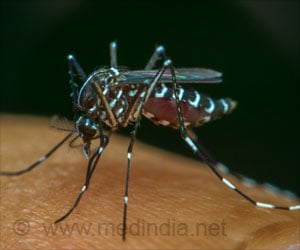Chronic granulomatous disease (CGD) patients are prone to recurrent and potentially life threatening bouts of infection due to the inability of phagocytic cells to kill invading microorganisms.

In a mouse model of CGD, deletion of Olfm4 protected the mice from infection with Staphylococcus aureus. The protective effect of Olmf4 deletion in CGD mice extended to multiple strains of S. aureus, including a community-associated strain of MRSA. This study suggests that targeting OLMF4 in CGD patients may enhance their ability to fight off bacterial infection.
Source-Eurekalert










